The best business to start for tax write-offs in 2026 involves selecting ventures that offer significant deductible expenses. Key options include consulting, freelance services, and home-based businesses, which allow for deductions on home office space, utilities, and equipment. To maximize savings, maintain detailed records of all business-related expenses and consider using financial management software like Bonsai Tax. This approach not only simplifies tax filing but also ensures you capitalize on all available deductions, potentially saving thousands annually. Start by setting up a separate business account to streamline expense tracking and consult with a tax professional to tailor strategies to your specific business model.
Taxes. The last thing every self-employed person wants to hear. If only there was a way to avoid them. Unfortunately, tax evasion is a crime that could cost you a huge fine or worse still, land you in jail.
Your best option is to employ best business practices that don’t make you tired just by thinking of filing taxes. Like having a separate business bank account to eliminate the added hassle of separating personal transactions from business transactions.
Or, having a software that tracks all money coming in and money coming out of your business account.
Not only will this simplify your work during tax time, but it may also save you hundreds or thousands of dollars in the form of tax write-offs.
Every year, small business owners end up paying more taxes than they should and it’s either because they don’t know that the expenses can be deducted or they failed to track them properly.
Note: The best way to save money on taxes is to record all your expenses for the year. Bonsai Tax could help with that. Our expense tracker will scan your bank/credit card statements to discover tax write-offs and save you a ton of money during tax time. In fact, users typically save $5,600 from their tax bill. Claim your 7-day free trial here.
Businesses with the most tax write-offs
Now, while it’s true that some businesses enjoy more deductible expenses than others, I would hate to imagine that’s your main motivation for opening a business. You are a trained marketer with the option to open your own marketing agency but you decide to be a real estate broker because you will pay less tax. That would be absurd, right?
That’s why we will take a different approach for this post.
Instead of focusing on the businesses, we will focus on the deductible expenses and how you can deduct them from your preferred business.
Then, at the end of the post, we will look at two in-demand businesses right now that have big business tax deductions. One of them could be exactly what you are looking for.
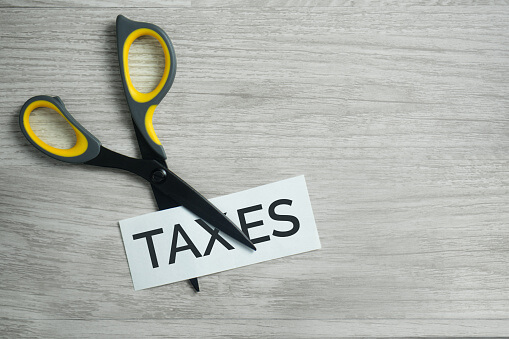
Examples of small business tax deductions
Deductible expenses fall into either of these three categories. Startup expenses, business operational expenses, and personal expenses.
Start-up Expenses
A huge chunk of the money you used to start your business can be deducted from your business's taxable income. This includes the money spent understanding the market, money spent sourcing and onboarding employees, money spent acquiring necessary business equipment, and business registering fees.
You are allowed to deduct up to $10,000 in start-up expenses. And for your business to qualify for this write-off, your startup cost should not have exceeded $50,000.
Business operational expenses
This is where the bulk of deductible expenses fall. This is not an exhaustive list but here are the most popular business operational expenses.
Transport
The expenses you incur to facilitate transportation in your business count as a tax deduction. This includes your own transport cost, transportation of raw materials/final product, and the transportation of employees or independent contractors. If you have a business vehicle, you can claim deductions on it either by using the standard mileage rate or calculating maintenance expenses such as gas, repair, license, and insurance.
Office rent
The rent you are paying for your business property is tax-deductible. If you are using a section of your home for work there is a way to deduct it from your income. What’s its size? The IRS allows you to deduct $5 for every square foot. However, you won’t qualify for this write-off if your home business space is larger than 50 square feet. Also, the space has to be used exclusively and regularly for business.
Salaries and benefits
As long as the employee is not directly involved in the ownership of the business you can deduct their salary or any other benefit that you offer them. The salary should be within reasonable rates and the employee should have provided services warranting the salary.
Travel expenses
For travel expenses to be acceptable, you need to be ordinary, necessary, and away from your tax home. Your tax home is the city or whole area where you conduct business. The travel also has to be longer than a normal day's work requiring that you sleep or rest on the way. To claim the business travel tax deduction, expenses include the fare to and from the destination, cost of taxis, lodging and meals, and other expenses that are unavoidable during the trip.
Taxes
You heard that right, the taxes that you pay while running the business are deductible business expenses. These include state or federal income tax, payroll taxes, personal property taxes, sales tax, real estate taxes, and also fuel taxes.
Business bad debts
Bad debt is money that you are owed but can’t collect. If you loaned some money to a client or sold goods on credit to customers and you are yet to be paid, the IRS allows you to write them off when filing taxes.
Utility bills
Do you have a dedicated phone line for the business? The cost of the phone line is a tax deduction together with other utility payments such as electricity bills, internet, gas, and water.
Education
If you took a course to advance your business skills the cost of the course is deductible unless the course qualifies you for a new career or is not related to the business. Other valid business education expenses include tuition, books, and research costs.
Food and beverages
Amazing, right? Any expense incurred to cater for food or drinks for business purposes can be deducted from your taxes. If it’s say a lunch meeting with a client, you can only deduct 50% of the money used. But, if it’s lunch paid for your employees during a business meeting, you can deduct 100% of the cost.
Computers and other business equipment
Computers or any equipment you use in your business like TV screens, printers, and other machinery are tax-deductible. You can choose to deduct their total cost in the year you buy them or you can choose to depreciate them and deduct them little by little as the years go by.
Computer software
Any piece of software you use for business purposes is deductible. This includes accounting and expense tracking software.
Advertising and promotion
This includes costs such as designing business cards and brochures, purchasing ad space, setting up a website, sponsoring an event, and a social media marketing campaign.
Bank fees
Includes overdraft fees, monthly maintenance fees, merchant or transaction fees paid to third-party payment processors, and any other fees you incur to maintain your business bank account. All interests on loans are also deductible as long as the loan is used to cover business expenses.
Legal and professional fees
If at some point you need to hire a legal or accounting pro for your business, you can deduct 100% of their fees.
Personal tax deductions
Personal expenses can also be deducted but only if you choose to itemize instead of taking the standard deduction. Examples of deductible personal expenses include.
- Charitable contributions - You can deduct charitable contributions to the tune of $300 as long as they were made to a legitimate charity.
- Child or dependent care - If you have a child or an adult-dependent who is physically or mentally unable to take care of themselves, you can deduct the expenses incurred in hiring care for them. The deduction will be 20-35% of your allowable expense. Allowable expense is $4000 for the care of a single person and $8,000 if you are caring for 2 or more people.
- Retirement contributions - If you have any money you are contributing towards employee retirement, it can be deducted as an expense.
- Health care expense - If you have health expenses you are paying out of pocket including health insurance premiums for you, your spouse, and your dependent, it is deductible.
Bonsai: What we can do for you
As we’ve already established, the main reason business owners fail to take full advantage of deductions available to them is either because they are unaware of them or, they did not take the time to keep track of them. All these problems can be overcome with one single solution.
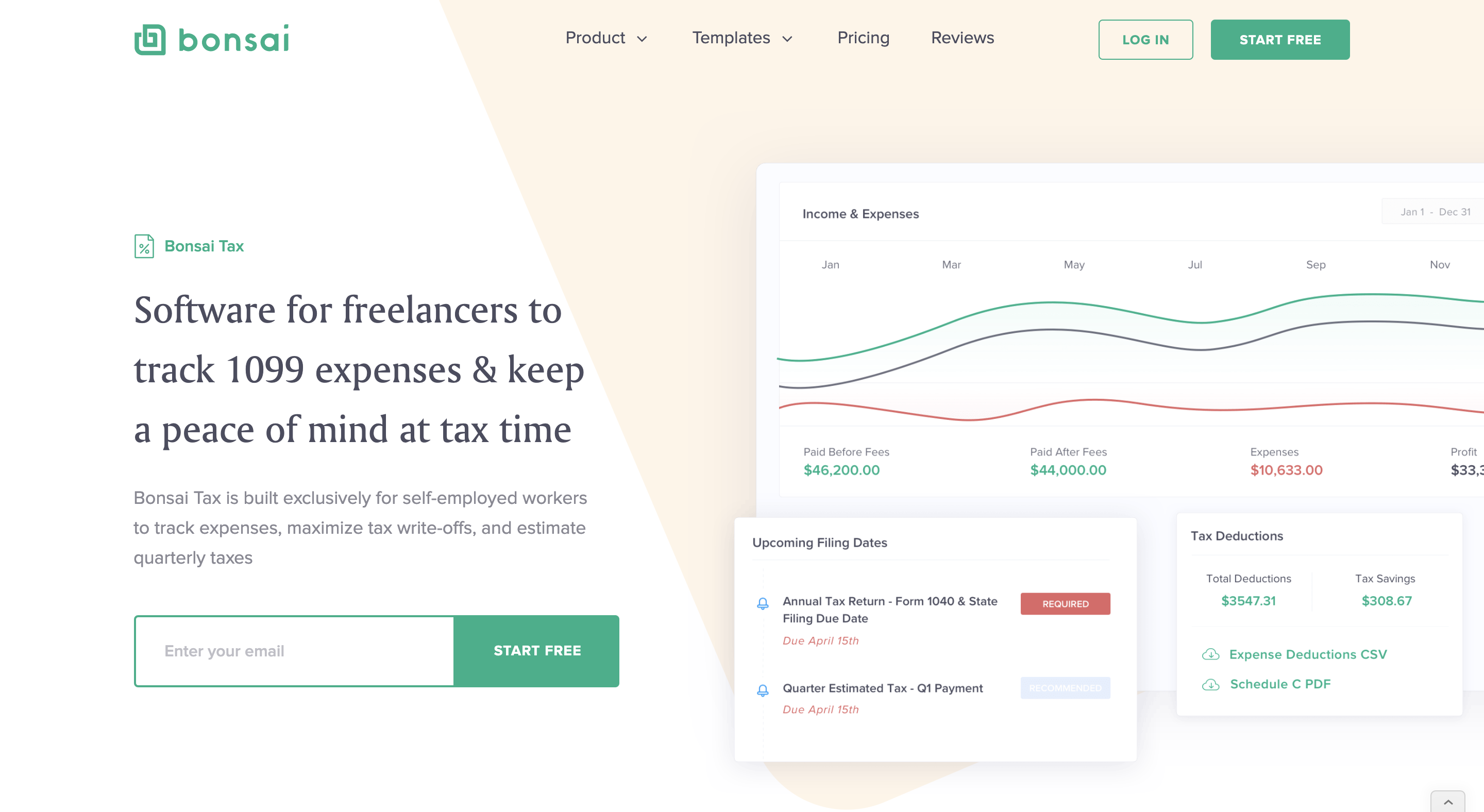
Bonsai Tax
Bonsai tax is an expense tracking software that integrates with your business bank account to keep track of payments received and payments made. The software helps categorize your expenses so that you never have to guess what a specific payment was for.
And to help you track expenses that were paid for in cash, Bonsai tax has a receipt scanner. It will capture the receipt and store it digitally which is a better option than filing the receipt manually.
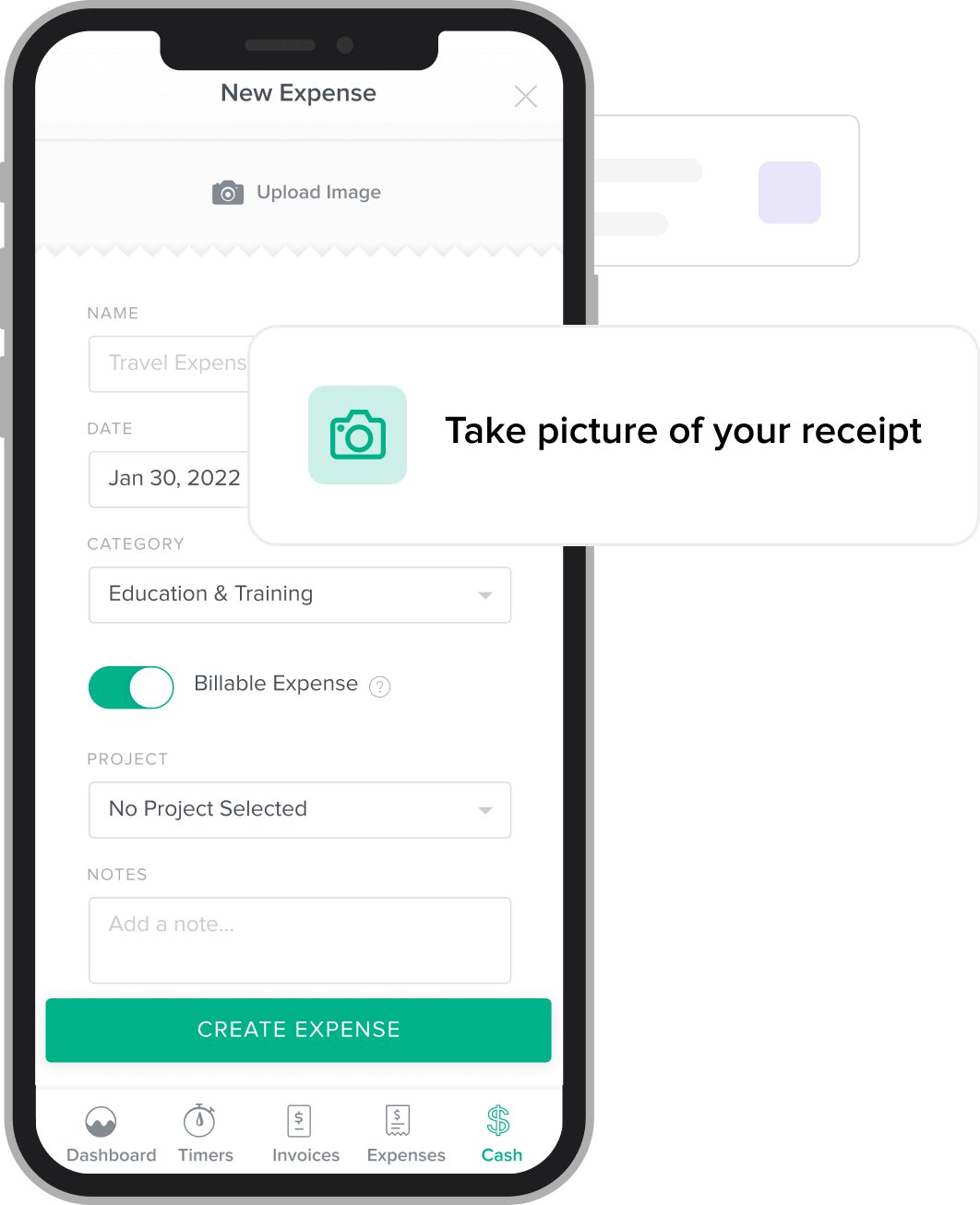
But here is the best part, Bonsai tax automatically tracks all the deductible expenses in your business, writes them off for you, and helps you estimate your quarterly tax.
You can use Bonsai at no cost for 14 days. You also get a 30-day money-back guarantee meaning if, after one month of using the software you are not satisfied with it, you can ask for a refund.
Unfortunately, even if you can accurately track all your business expenses, you won’t be able to claim them unless you have a separate business bank account. If you are using your personal bank account for business transactions, the IRS does not recognize your business as legitimate. That’s where Bonsai's business account comes in.
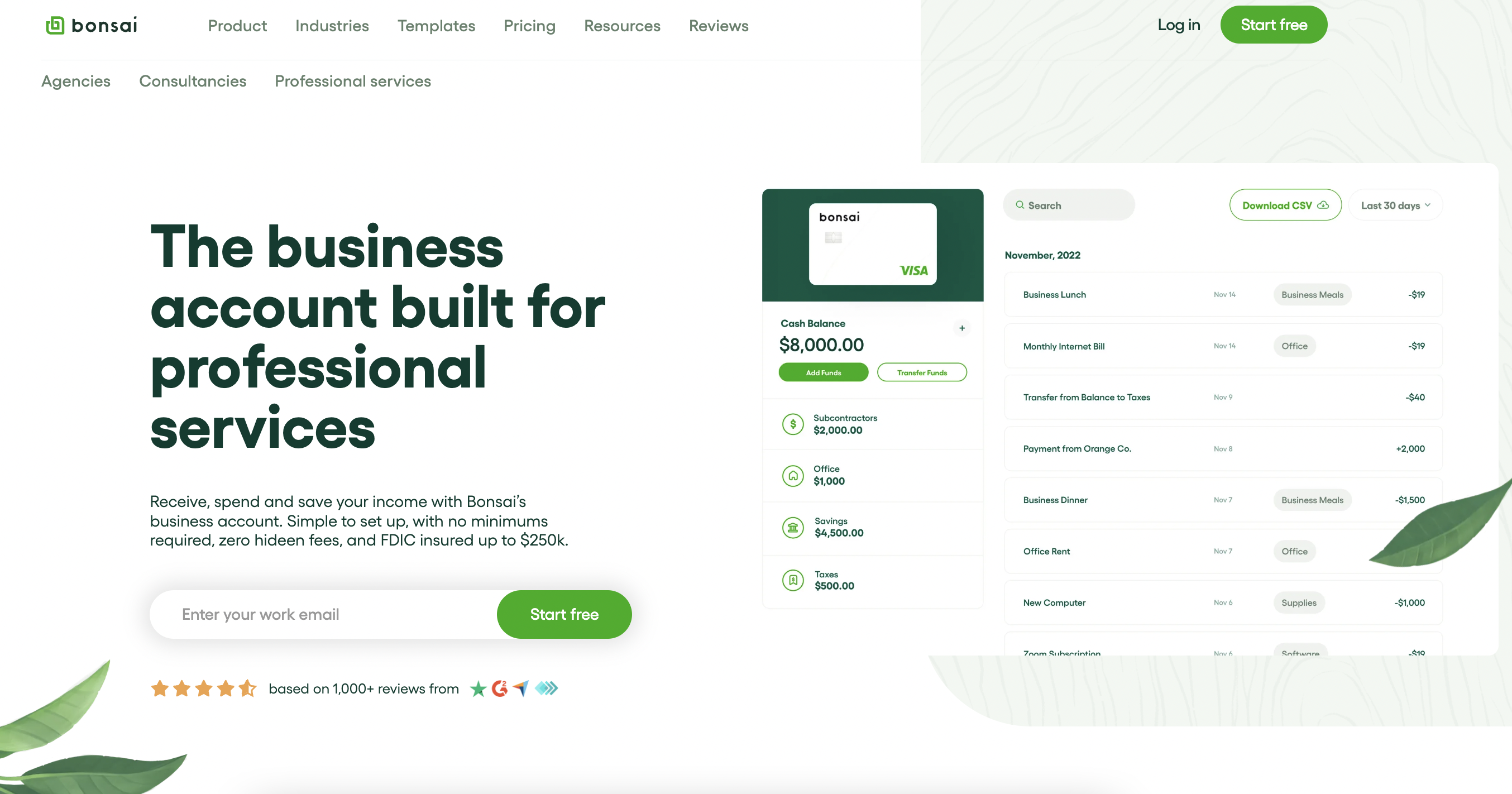
Bonsai's business account
This is a new freelancer business checking account that’s completely free to use. You don’t need an initial deposit and you are not required to maintain a minimum bank balance. All transactions are free and there are no monthly maintenance fees.
Bonsai's business account is really simple to use, making it perfect for a small business owner. No application process so a new checking account is guaranteed.
As a member, you will have different ways to manage your business funds including creating envelopes that work as sub-accounts. You can create envelopes for all necessary expenses in your business.
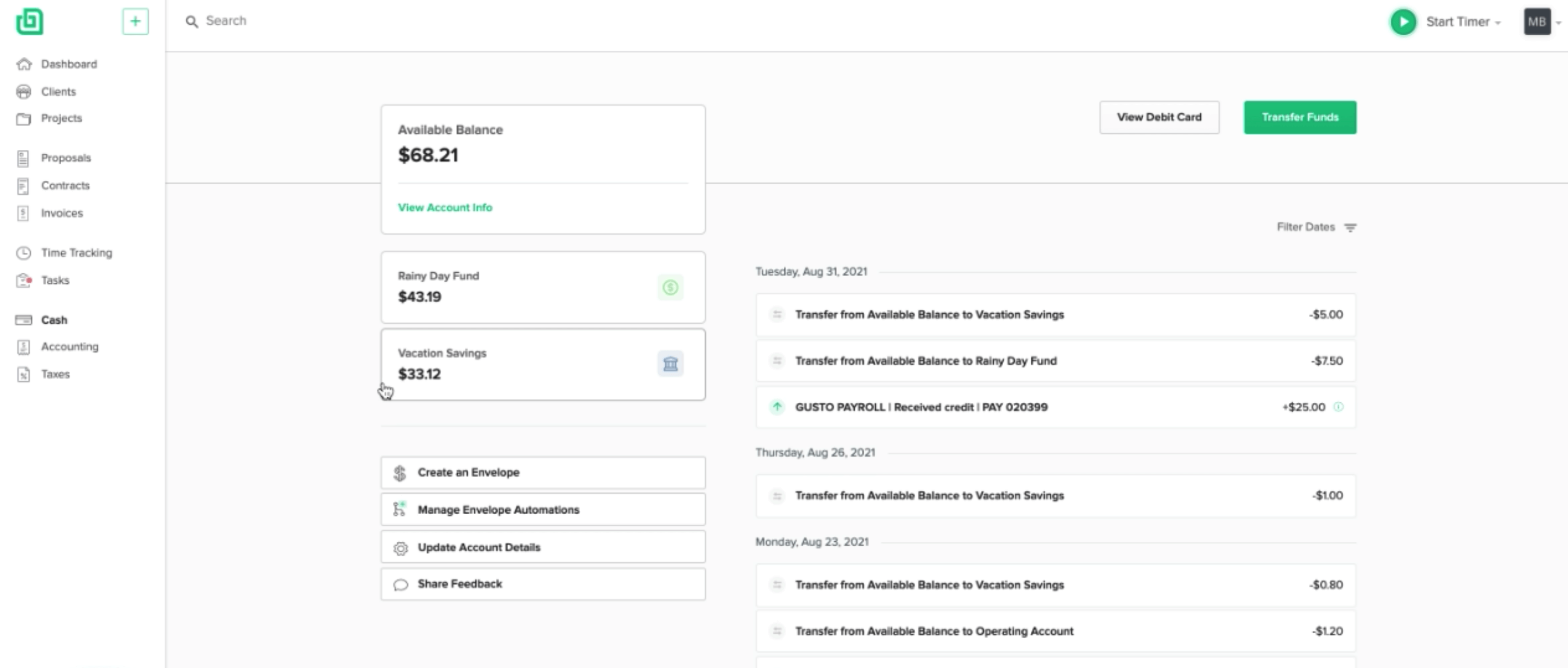
You can have an envelope for employee salary, an envelope for taxes, an envelope for marketing, and another one for business utility bills.
You can also have it so that any time you receive money into the checking account, a certain percentage is sent to specific envelopes. This way, you are never caught off guard by bills.
Top businesses with big tax write-offs
As promised, here are two businesses you can do right now that come with massive tax savings
Photography
A lot of people do photography as a hobby but if you can scale it into a legitimate business, you will have a lot of tax write-offs to work with.
To begin with, the camera, the lenses, tripods, lighting, and all equipment you use for shoots are deductible. You can either choose to deduct them at once or depreciate them.
The computer you use for editing and the editing software is also a deductible business expense. If you have to travel to a different location for shoots, any expenses incurred in the process are deductible as travel expenses.
The meals you take, the hotel you stay in, all these are also deductible. If you have to pay for a photography location then that’s another deductible expense. As you can see you are guaranteed to save a significant amount of money with this business.
Read out tax guide for freelance photographers.
Coaching
Coaching, is a growing field that has drawn in a lot of subject matter experts becuase of it's ability to scale up or down and borrow on the knowledge you may already have. Moreover it is a great business to leverage favorable tax treatment. For example, if you are a life coach who only meets with their coaching clients face-to-face you will immediately be able to deduct vehicular expenses - maintenance, gas, mileage. Just be sure to keep a careful record of all the mileage that is personal vs. business.
If you have a subscription to software for invoicing, scheduling, proposals etc, you'll be able to easily save money. This goes for any other business subscription software, or advertising expense you've incurred.
The biggest expense that most life coaches forget about expensing is the path to life coach certification that they undertook. This is also true for newly certified health & wellness coaches. By paying for courses (sometimes more than $1,000 USD) and not claiming these business expenses on your taxes, you could be potentially paying taxes on thousands of dollars that you do not have to.
Read on for more more business coaching tax deduction tips
Marketer
Marketing is another skill that is currently in high demand and comes with a lot of write-offs you can take advantage of. If you had to take a class to enhance your skills you can deduct the cost of the class as an expense.
If you have any ongoing subscription for marketing resources, these are also deductible.
If you are just starting and you are the only employee, you can work from home which will make you eligible for the home office deduction.
To bag clients, you will need to practice your own marketing methods and launch a marketing campaign of your own. This will cost you money but the cost is deductible. The cost of internet, electricity, and any other utility is also deductible.
And if you have to meet a client face to face you can deduct the travel expense, meals, and accommodation.






